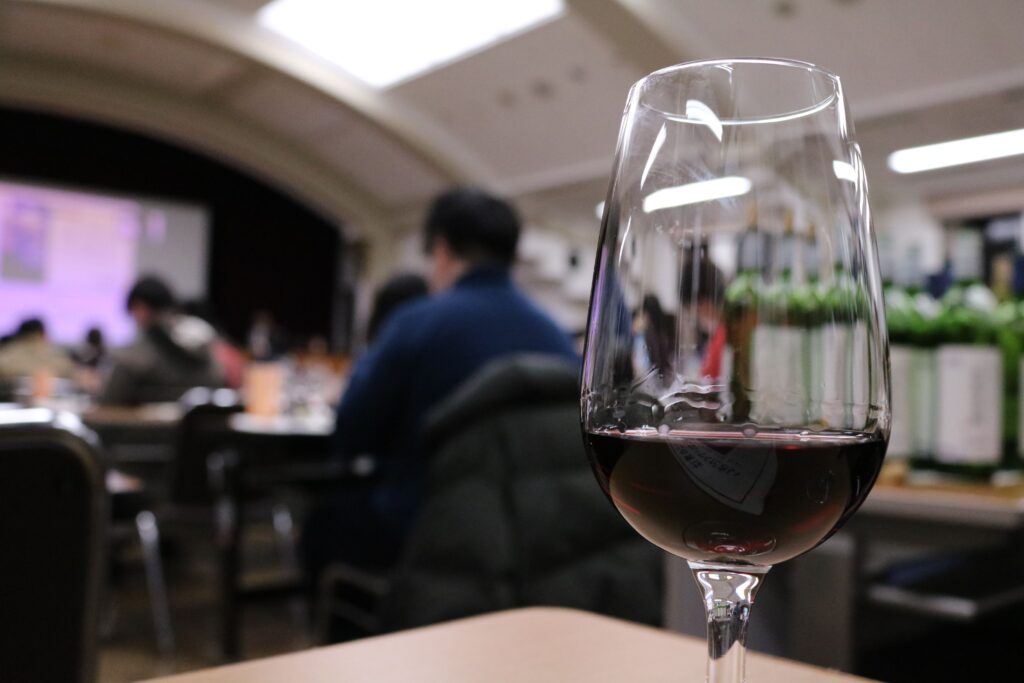This article was published in the Autumn 2022 issue of Litterae Populi. The full issue can be found here.
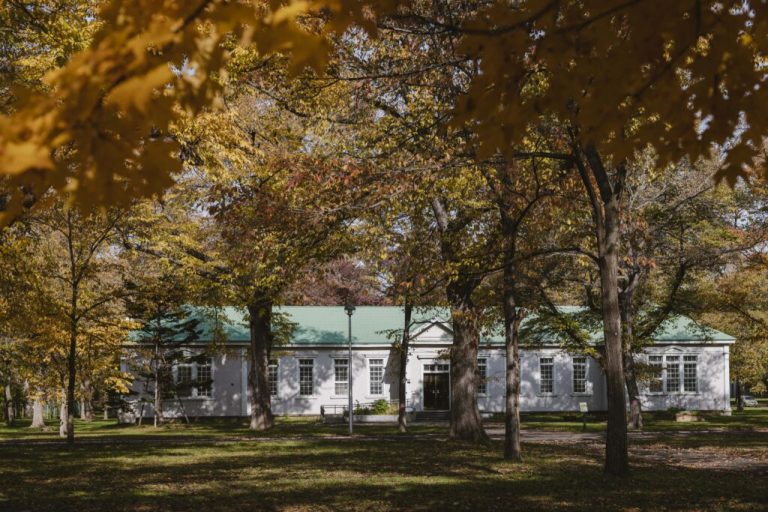
The Center of Education and Research for Hokkaido Wines was newly established in April 2022 as a center for multifaceted education and research on wine in Hokkaido. The Center will also work with the local community to develop a wide range of industries centered on wine and thus revitalize the local economy.
The history of wine production in Hokkaido began with the establishment of the Kaitakushi (Hokkaido Development Commission) Winery in 1876 when the Sapporo Agricultural School was opened. This history was once interrupted before World War II but restarted in Ikeda Town, Tokachi, where Tokachi wine appeared in the 1960s. Over the next sixty years, the Hokkaido wine industry grew significantly, and many wineries were established in Furano, Nanae, Otaru, and other locations throughout Hokkaido.
On the other hand, Hokkaido’s harsh winters constantly annoy producers, and there are still many issues to be addressed, such as the slow growth of harvest yields.
Many points in the processes of viticulture, wine-making (vinification) and marketing still need to be improved.
In light of this situation, Hokkaido has been hosting a training program for those involved in wine-making and related activities, starting in 2015 with the Hokkaido Wine School, which was later renamed the Hokkaido Wine Academy (since 2016). Researchers from Hokkaido University have participated as lecturers. This project became one of the opportunities for cooperation between wine-making regions and local universities to develop the wine industry through education and research.
Forming a unique interdisciplinary center of the University
In April 2021, the Laboratory for Nouvelle Vague of Hokkaido Wines was established with donations from Nitori Holdings Co., LTD. and CO-OP Sapporo. This laboratory centers on Professor Teruo Sone (who also holds a position in the Applied Molecular Microbiology Laboratory of the Research Faculty of Agriculture). Other members include dedicated Specially Appointed Associate Professor Tomoyuki Sato and invited wine experts from other institutions.
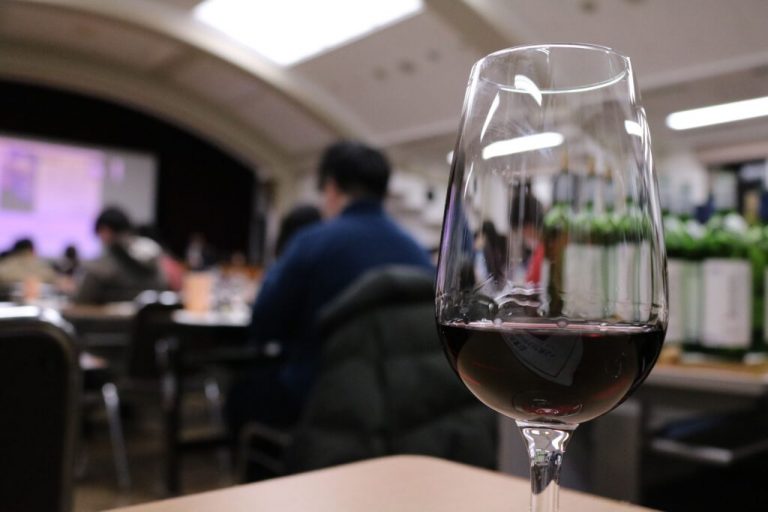
One of the initiatives that Professor Sone especially focused on was the Sustainable Winemaking in Hokkaido course offered to all graduate students in the second semester of FY 2021. In an omnibus format, several lecturers from Hokkaido University and elsewhere gave lectures on topics ranging from viticulture to marketing, including wine tasting. Professor Sone hopes that graduate students with various specialties will find a connection between wine and their research, and that they will become Hokkaido wine supporters who promote these wines in Japan and abroad, in the future. As a result, more than sixty graduates attended this lecture, beating all expectations.
Another initiative he focused on was the Hokkaido Wine Symposium (February 15-16, 2022). Researchers and students from universities and research institutes in- and outside Hokkaido, winery workers, high school students, and others from various fields gathered to explore ways to develop Hokkaido’s wine industry, with “sustainability” as the keyword.
The Center of Education and Research for Hokkaido Wines was established in April 2022 as a center that promotes comprehensive education and research on wine at the core, centered on the donated laboratory Laboratory for Nouvelle Vague of Hokkaido Wines. The center attracts a diverse range of human resources, from the fields of natural science, such as meteorology, soil science, agronomy, microbiology, and agricultural engineering, to the social sciences, such as education, economics, geography, and marketing. Professor Sone says, “We hope to leverage the strengths of the comprehensive university and to pursue large-scale projects spanning a wide range of fields.” They aim to develop interdisciplinary and advanced wine research.
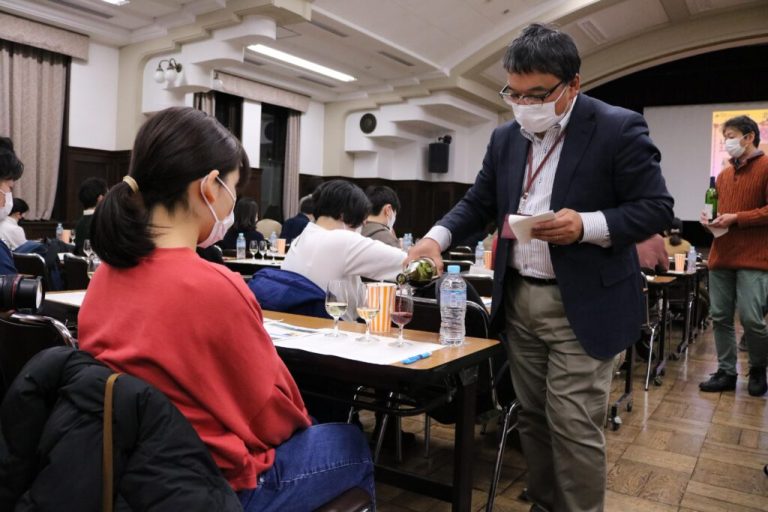
At the same time as the center opened, the Hokkaido Wine Platform was also established. It functions as a consultation service to support wineries in Hokkaido together with the Hokkaido government and research institutes in Hokkaido. “We hope to identify issues facing the Hokkaido wine industry through this platform, which will eventually grow into an institution that can raise funds and provide various services,” said Professor Sone.
Toward sustainable development of the wine industry
The Center of Education and Research for Hokkaido Wines is currently operating in a room of the School of Agriculture building, but in April 2023 it will move to the former Department of Entomology and Sericulture building in the Elm Forest in front of the School of Agriculture. This former department building is the oldest existing building on the Sapporo campus. It will be renovated while preserving the original parts for the Hokkaido Wine Education and Research Center. It will be a center for research, promotion, and human resource development in the field of Hokkaido wines, with a wine cellar and even a café where people can enjoy wine, creating a space where citizens, students, producers, and researchers can daily talk with each other. This space is also expected to serve as a starting point for wine tourism in Hokkaido, creating a virtuous cycle of travel to wine-making regions in Hokkaido and revitalizing the Hokkaido economy.
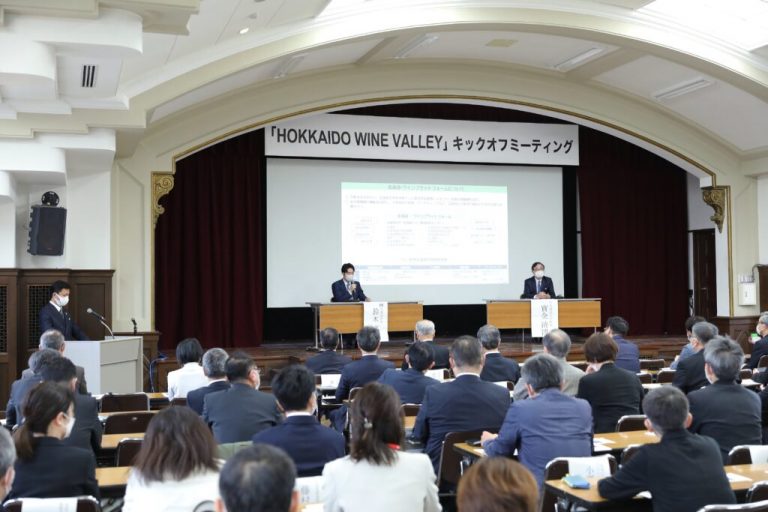
The “All-Hokkaido” challenge to make Hokkaido a world-class competitive wine-making region has just begun, based on the combined wisdom that Hokkaido University has accumulated over its long history, and by expanding cooperation and collaboration in the relevant regions.
This article was published in the Autumn 2022 issue of Litterae Populi. The full issue can be found here.


